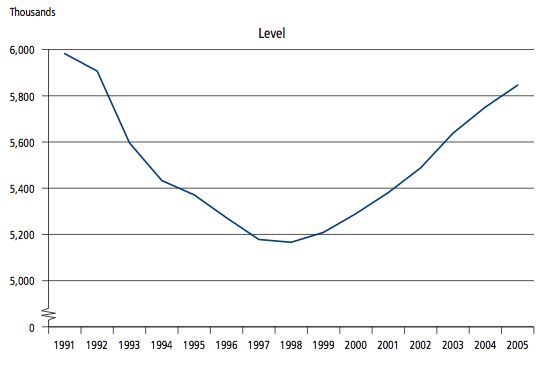The CIPD has estimated that up to half a million public sector jobs could go within the next 5 years, whoever wins the next Election.
Is this realistic and how does it sit in historic trends?

This sort of swing in public sector employment levels certainly isn’t unprecedented.
The last Conservative government of John Major managed to reduce public sector employment by over 800,000 jobs between 1991 and 1997. They eliminated 300,000 jobs in one year alone (1993 – although that included rail privatisation).
New Labour has gradually reversed this cut, and public sector employment currently at about 6.1m is marginally above what it was when John Major came to office 1990.
Most of these new jobs have been in policing (67,000), education (276,000) and health (321,000).
The figure of 500,000 jobs is thus well within the scale and timeframes of previous public sector employment swings.
It is, however, very clear from the current structure of public sector employment that such a level of cuts could not be made without a dramatic impact on frontline services like health, education and policing.
It is the equivalent of about £25bn in costs to the public sector (using very conservative estimates), so it is also well within the range of cost cutting that have been predicted for the public finances over the next 4-5 years (see the FT last week).
So in terms of precedent and in the context of public spending levels/deficits it is entirely plausible that the figure of 500,000 jobs to go is realistic.
The effects of such cuts on public services, the housing market and the wider economy would be significant.